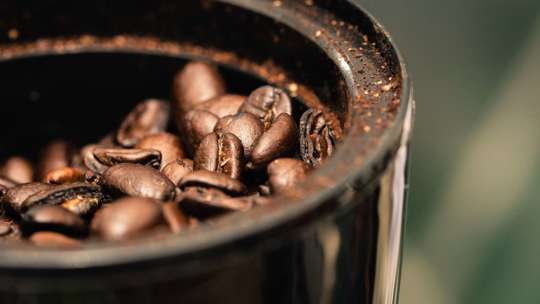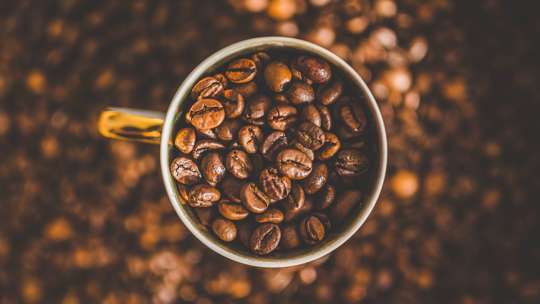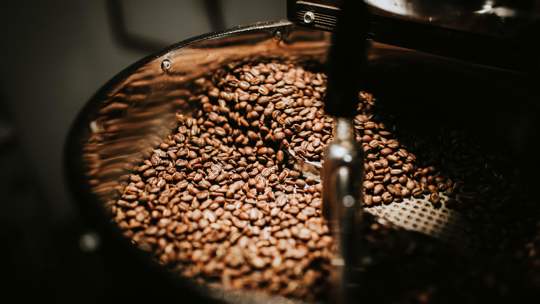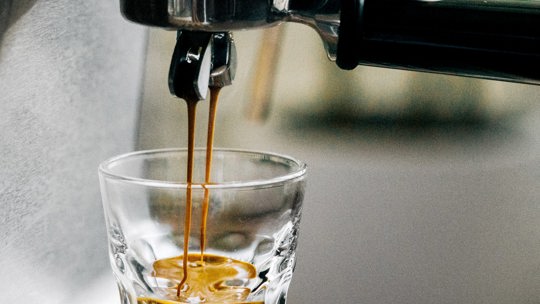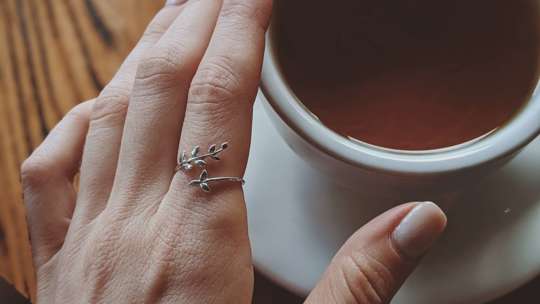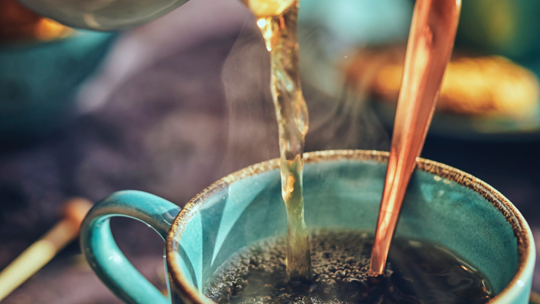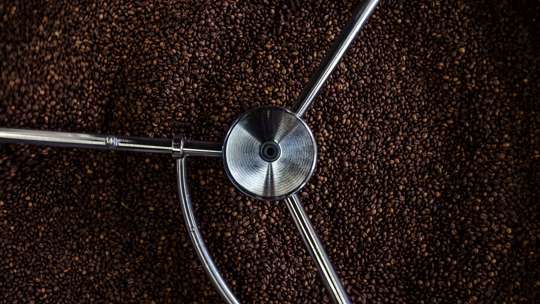
Decaf Tea
Tea undoubtedly has a rich history and profound cultural significance across many cultures across the globe.
From the intricate tea ceremonies of Japan to the hearty tea culture in Britain, this versatile drink has woven itself into the historical fabric of many societies. While traditional tea is often praised for its invigorating caffeine content, decaffeinated tea offers a perfect alternative for those seeking the same delightful flavours and health benefits without the stimulating effects of caffeine.
What is Decaf Tea?
The origins of tea trace back to ancient China, around 2737 BCE, when Emperor Shen Nong discovered the refreshing properties of tea leaves. Legend has it that while boiling water, some tea leaves accidentally blew into his pot, creating a brew that not only quenched his thirst but also revitalised his spirit. From this serendipitous discovery, tea quickly became an integral part of Chinese culture, eventually spreading to other parts of Asia and the world.
Tea made its way to Japan, where it was embraced by Zen Buddhist monks and integrated into their meditation practices, evolving into the highly ritualised Japanese tea ceremony. In the 16th century, Portuguese traders introduced tea to Europe, where it swiftly gained popularity, particularly in Britain, giving rise to the iconic afternoon tea tradition.
However, to look at decaf tea more specifically, this is a type of tea that has been processed to remove most of its caffeine content. This allows individuals to enjoy the taste and some of the health benefits of tea without the stimulating effects of caffeine. This is ideal for those who like to enjoy tea before bed, pregnant women who can only have a certain amount of caffeine, and those who monitor their caffeine intake.
Caffeine Content
In relation to other popular teas, decaf tea bags have significantly less caffeine content.
-
Regular Tea: Black tea typically contains 40-70 mg of caffeine per 8-ounce cup, while green tea contains about 20-45 mg.
-
Decaf Tea: Contains about 2-5 mg of caffeine per 8-ounce cup, depending on the decaffeination process.
-
Green Tea: Contains approximately 20-45 milligrams per cup. Green tea is lighter in flavour and has a moderate amount of caffeine. It is often associated with numerous health benefits due to its high antioxidant content.
-
Oolong Tea: Approximately 30-50 milligrams per cup. Oolong tea offers a complex flavour profile and falls between black and green tea in terms of caffeine content.
-
White Tea: Approximately 15-30 milligrams per cup. The least processed of all teas, white tea has a delicate flavour and the lowest caffeine content among traditional teas.
Decaffeination Methods
Methylene Chloride
Methylene chloride decaffeination involves soaking the tea leaves in methylene chloride, a solvent that selectively binds to caffeine molecules. During this process, the methylene chloride penetrates the tea leaves and extracts the caffeine. After the caffeine is removed, the solvent is then evaporated through drying, leaving the tea leaves with a significantly reduced caffeine content. This method is effective at maintaining much of the tea's original flavour, although the use of a chemical solvent may be a concern for some consumers despite stringent regulations ensuring safety.
Ethyl Acetate
Ethyl acetate decaffeination, often referred to as "natural decaffeination," utilises ethyl acetate, a compound naturally found in tea leaves and many fruits. In this method, tea leaves are treated with ethyl acetate, which binds to the caffeine molecules and removes them from the leaves. The caffeine-ethyl acetate solution is then removed, and the tea leaves are dried. This method is considered more natural compared to others, but it can sometimes leave a slight aftertaste and may slightly alter the tea's delicate flavours.
Carbon Dioxide (CO2) Process
The Carbon Dioxide (CO2) process is a highly effective and popular method for decaffeinating tea. This technique uses pressurised CO2, which acts as a solvent to selectively extract caffeine from the tea leaves. The CO2 is able to penetrate the tea leaves and dissolve the caffeine while leaving other flavour compounds intact. Once the caffeine is removed, the CO2 is depressurised and evaporated, leaving the tea virtually unchanged in flavour and rich in its natural antioxidants. This method is praised for its ability to preserve the tea's original taste and health benefits while being environmentally friendly and safe.
Water Processing (Swiss Water Process)
Water processing, also known as the Swiss Water Process, is a chemical-free method of decaffeination. In this process, tea leaves are soaked in hot water to dissolve caffeine and other soluble compounds. The caffeine-laden water is passed through a carbon filter that captures and removes the caffeine molecules. The water, now free of caffeine but rich in flavour compounds, is reintroduced to the tea leaves, allowing them to reabsorb the flavours. This method preserves the tea's natural taste and is favoured by those seeking an organic decaffeination process. However, it can sometimes be less effective at removing all caffeine compared to other methods.
Each decaffeination method has its unique advantages and potential drawbacks, but advancements in technology have ensured that all these processes can produce high quality decaf tea with a focus on flavour preservation and safety.
Health Benefits
Decaf tea offers a multitude of significant health benefits, making it a great choice for those who want to enjoy the goodness of tea without the stimulating effects of caffeine. Here are some key health benefits associated with decaf teas:
Rich in Antioxidants
Decaf tea, like its caffeinated counterpart, is packed with antioxidants, such as polyphenols, catechins, and flavonoids. These powerful compounds help combat oxidative stress by neutralising free radicals in the body, which can reduce the risk of chronic diseases such as heart disease, cancer, and diabetes. Regular consumption of decaf tea can support overall cellular health and enhance the body's natural defence mechanisms.
Supports Heart Health
Studies have shown that the antioxidants in decaf tea can improve heart health by reducing blood pressure, lowering LDL cholesterol levels, and improving blood vessel function. These effects contribute to a reduced risk of cardiovascular diseases, such as heart attacks and strokes.
Aids in Digestion
Decaf tea, especially herbal varieties like peppermint or chamomile, can aid in digestion and soothe the digestive tract. The anti-inflammatory properties of these teas can help alleviate symptoms of indigestion, bloating, and nausea. Additionally, decaf green tea has been shown to support gut health by promoting the growth of beneficial gut bacteria.
Promotes Relaxation and Reduces Stress
Decaf tea provides a calming and soothing experience, making it an excellent beverage for reducing stress and promoting relaxation. The act of drinking a warm cup of tea can be a comforting ritual, helping to unwind after a long day. Certain decaf teas, such as chamomile and lavender, are known for their natural relaxing properties and can help improve sleep quality and reduce anxiety.
Supports Bone Health
Tea, including decaf tea, contains compounds that are beneficial for bone health. Studies have suggested that regular tea consumption can improve bone mineral density and reduce the risk of osteoporosis. The polyphenols in tea help maintain bone strength and integrity, making it a beneficial addition to a diet aimed at supporting bone health.
Enhances Oral Health
Decaf tea contains fluoride and other compounds that can improve oral health. Regular consumption of decaf tea can help reduce the growth of bacteria that cause cavities and gum disease. The antioxidants in tea also have anti-inflammatory properties that can help maintain healthy gums and prevent oral infections.
Supports Weight Management
Decaf green tea, in particular, has been associated with weight management benefits. The catechins in green tea can boost metabolism and increase fat oxidation, aiding in weight loss and maintenance. Drinking decaf green tea can be a great way to enjoy these benefits without the potential side effects of caffeine, such as increased heart rate and jitteriness.
Hydration
Decaf tea contributes to daily fluid intake and helps keep the body hydrated. Staying hydrated is crucial for overall health, supporting bodily functions such as digestion, temperature regulation, and nutrient transportation.
As you can see from the above, decaf teas offer a wide range of health benefits, from supporting heart and bone health to aiding digestion and promoting relaxation. By incorporating decaf tea into your daily routine, you can enjoy the delightful flavours and numerous health advantages of tea without caffeine.
Considerations
When selecting decaf tea, there are several factors to consider to ensure you get the best flavour and health benefits while minimising any potential downsides. Here are some key considerations:
Flavour
The decaffeination process can slightly alter the flavour of tea, often resulting in a milder taste compared to caffeinated choices. This change in flavour occurs because some of the compounds responsible for the tea's robust and complex profile may be affected during the caffeine extraction process. Different decaffeination methods impact flavour to varying degrees:
-
CO2 Process: Tends to preserve the tea's original flavour well, resulting in minimal taste alteration.
-
Water Processing: Generally maintains the flavour, though some nuances may be lost.
-
Ethyl Acetate and Methylene Chloride: These methods can sometimes leave a slight aftertaste and alter the delicate flavours of the tea.
Nutrient Retention
While decaf tea retains most of the health benefits associated with regular tea, the decaffeination process can lead to a slight reduction in antioxidant levels. Antioxidants like polyphenols and catechins are sensitive to processing, and some of these beneficial compounds may be lost during caffeine extraction. However, high quality decaf teas still provide a substantial amount of antioxidants, contributing to their health benefits. To maximise nutrient retention:
-
Opt for teas decaffeinated using methods that are gentler on the tea leaves, such as the CO2 process.
-
Do your research and choose reputable brands that prioritise maintaining the nutritional integrity of their teas.
Quality
The quality of decaf tea varies widely depending on the source and the decaffeination method used. High quality decaf teas from reputable sources are more likely to ensure minimal chemical residues and better flavour. Here are some tips for choosing high quality decaf tea:
-
Look for well known and respected tea brands that provide detailed information about their decaffeination process.
-
Organic decaf teas are grown and processed without synthetic pesticides or chemicals, reducing the risk of chemical residues.
-
Methods like the CO2 process and water processing are preferred for their ability to preserve flavour and antioxidants while avoiding chemical residues.
By prioritising quality, you can enjoy a great tasting cup of decaf tea with the assurance that it has been processed safely and retains most of its beneficial properties.
Popular Decaf Tea Varieties
Decaf tea doesn’t just include traditional black tea. Decaf tea encompasses a wide range of options to choose from, each offering unique flavours and health benefits. Here are some popular types of decaf tea that cater to different tastes and preferences:
Decaf Black Tea
Decaf black tea is a staple for those who enjoy the robust and full-bodied flavour of traditional black tea without the caffeine. It can be enjoyed plain or with milk and sweeteners, just like regular black tea. Popular varieties include:
-
Decaf English Breakfast: Known for its strong, rich flavour, making it a perfect morning brew.
-
Decaf Earl Grey: A classic black tea infused with bergamot oil, offering a fragrant and citrusy aroma.
Decaf Green Tea
Green tea is celebrated for its light, fresh flavour and numerous health benefits. Decaf green tea allows you to enjoy these benefits without the caffeine. Popular options include:
-
Decaf Sencha: A popular Japanese green tea with a grassy, slightly sweet flavour.
-
Decaf Matcha: Finely ground green tea powder that can be whisked into hot water or added to smoothies and baked goods for a vibrant, antioxidant-rich boost.
Decaf Oolong Tea
Oolong tea strikes a balance between black and green tea, offering a complex flavour profile. Decaf oolong tea is less common but equally delightful:
-
Decaf Formosa Oolong: Originating from Taiwan, this tea has a floral and fruity flavour with a hint of earthiness.
Decaf White Tea
White tea is the least processed of all teas, known for its delicate and subtle flavour. Decaf white tea preserves these characteristics:
-
Decaf Silver Needle: Made from young tea buds, this tea offers a light, sweet, and slightly floral taste.
Decaf Herbal Teas
While herbal teas are naturally caffeine-free, some popular blends are also available in decaf versions for those who prefer the assurance of a decaffeinated label. Popular decaf herbal teas include:
-
Decaf Peppermint: Known for its refreshing and soothing properties and often used to aid digestion and relieve stress.
-
Decaf Chamomile: A classic herbal tea with calming effects, perfect for winding down before bedtime.
-
Decaf Rooibos: Also known as "red bush tea," rooibos is rich in antioxidants and has a naturally sweet, nutty flavour.
Decaf Blends and Flavored Teas
For those who enjoy flavoured teas, many blends are available in decaf versions:
-
Decaf Chai: A spiced tea blend typically made with black tea and a variety of spices like cinnamon, cardamom, and cloves, offering a warm and aromatic experience.
-
Decaf Jasmine Green Tea: Green tea is scented with jasmine blossoms, providing a fragrant and floral cup of tea.
If you’re monitoring your caffeine intake or opting for decaf teas for health reasons, the world of decaf tea is diverse and vibrant, offering a variety of flavours and health benefits. Whether you prefer the boldness of black tea, the freshness of green tea, the complexity of oolong tea, the delicacy of white tea, or the soothing qualities of herbal teas, there is a decaf tea bag perfect for you.
At Cafė Du Monde, we pride ourselves on understanding the variety of beverages enjoyed by those across the globe. Whether it’s a traditional cup of espresso in the morning or a delicious decaf tea before bed, we understand how important a hot drink is in our routine. We stock a great selection of tea bags in our store, including Newby Tea. Browse our shop and find the perfect rink for you.
Decaffeinated versions of traditional teas:
Decaffeinated teas, on the other hand, are traditional teas like black, green, or oolong that have undergone a process to remove most of the caffeine, still enjoying the great taste without the caffeine buzz. Decaffeination methods vary but typically involve either a chemical solvent or a natural carbon dioxide method to extract caffeine while preserving flavour.
